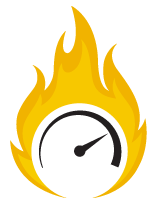|
CETL | Canvas | AI Guide | Course Design | Online | Software | Workshops
Handling Hot Topics
Resources for Supporting Our Campuses
in Politically Fraught Times
Sometimes local, national, and international events send shock waves through our communities that most of us cannot ignore and that all of us—students, faculty, and staff—experience in different ways. Although we can never predict how to respond in such moments, here are a handful of resources that might help with framing conversations both in and outside of the classroom.
—Posted on February 2, 2018 by the POD Network
Teaching after Charlottesville by Derek Bruff
A review of best-practices for faculty-student interactions after a traumatic event and resources specific to teaching in the wake of violence at Charlottesville in 2017
Discussing Traumatic Events from UC Berkeley
Guidelines on how to prepare for and structure a discussion, if you choose to do so
Brené Brown on Empathy (video)
3-minute video on distinction between empathy and sympathy with strategies about how to listen to and connect with someone who is suffering
Calling In: A Quick Guide on When and How by Sian Ferguson
Distinction between calling out and calling in as ways to get someone to stop an oppressive behavior (calling in attempts to do this in the most loving, self-respecting way possible)
The Faculty Focus Special Report on Diversity and Inclusion in the College Classroom
"Managing Hot Moments in the Classroom: Concrete Strategies for Cooling Down Tension" (p. 4)
"Seven Bricks to Lay the Foundation for Productive Difficult Dialogues" (p. 6)
"Overcoming Racial Tension: Using Student Voices to Create Safe Spaces in the Classroom" (p. 9)
"Managing Microaggressions in the College Classroom" (p. 10)
Responding to Everyday Bigotry from Southern Poverty Law Center
Strategies for responding to bigotry at work, home, in public, and in yourself
Responding to Microaggressions with Microresistance: A Framework for Consideration by Cynthia Ganote, Floyd Cheung, and Tasha Souza (pp. 3-7)
Theory of how microresistance can be an effective response to microaggression
Start Talking: A Handbook for Engaging Controversy in Higher Education ed. Kay Landis, University of Alaska Anchorage, introduces faculty to strategies for introducing controversial topics in the classroom. Additional info: University of Alaska-Anchorage’s Center for Advancing Faculty Excellence
Stop Talking: Indigenous Ways of Teaching and Learning and Difficult Dialogues in Higher Education by Libby Roderick and Ilarion Merculieff, introduces faculty to 10,000-year old Alaska Native pedagogies as well as key difficult dialogues between indigenous and academic communities. Additional info: University of Alaska-Anchorage’s Center for Advancing Faculty Excellence
Self-Care Resources for Days When the World Is Terrible compiled by Miriam Zoila Pérez
Ideas for how to maintain health, sanity, and integrity and includes resources for everyone but especially for people of color and LGBTQ individuals
There Is No Apolitical Classroom: Resources for Teaching in These Times
Post created by members of NCTE's Standing Committee Against Racism and Bias in the Teaching of English.
Eight Actions to Reduce Racism in College Classrooms by Harper, S.R. & Davis, C. H.F.
Trump Syllabus 2.0, ed. N.D.B. Connolly and Keisha Blain. (You may find some of the readings helpful in understanding/contextualizing the current administration and reactions to it. In addition, such resources can support exploration of how the larger national context influences the environments in our classrooms). "This course, assembled by historians N. D. B. Connolly and Keisha N. Blain, includes suggested readings and other resources from more than one hundred scholars in a variety of disciplines. The course explores Donald Trump's rise as a product of the American lineage of racism, sexism, nativism, and imperialism. It offers an introduction to the deep currents of American political culture that produced what many simply call "Trumpism": personal and political gain marred by intolerance, derived from wealth, and rooted in the history of segregation, sexism, and exploitation." [for an explanation of the shortcomings of the first incarnation of the Trump Syllabus, see this article on the AAIHS blog]
Trumpism and American Democracy: History, Comparison, and the Predicament of Liberal Democracy in the United States
This article discusses the current threat to democracy and offers a historical and comparative perspective on American politics. The authors argue that the current political circumstance is an existential threat to American democratic order because of the interactive effects of institutions, identity, and norm-breaking in American politics.
Citation
ADDITIONAL CETL RESOURCE MATERIALS
|